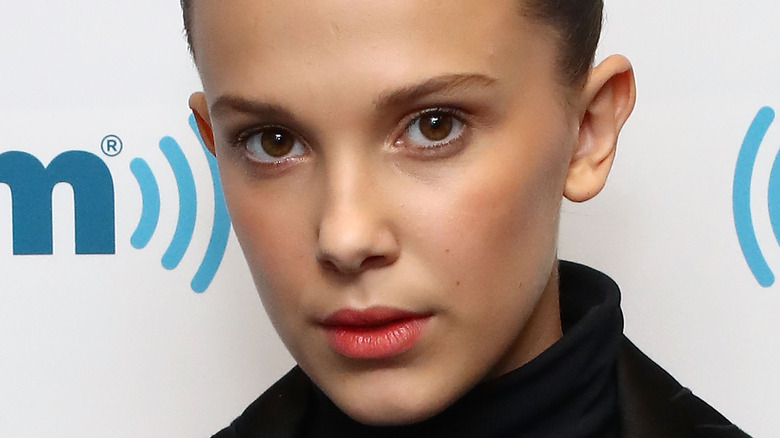Why One Medical School Is Offering A Class On Season 4 Of Stranger Things
It's been nearly a month since the fourth season of "Stranger Things" broke the internet — and we're still not over it. Neither is the rest of the world. The scariest season of the hit Netflix show yet, this chapter not only became the most watched English-language series in Netflix history, but it is also the first show to become No. 1 on Netflix in over 80 countries, as noted by CNN. Thankfully, we don't need to wait too much longer for our next "Stranger Things" fix. Season 4's second volume will be premiering on July 1.
From high school dramas to romantic tension to long overdue reunions, this seven-part season is packed to the brim with riveting content. But the main storyline revolved around Vecna, a vicious monster that feeds on the darkness and despair of teenagers in Hawkins, Indiana. The one way to ward off Vecna's fatal curse? Listening to your favorite song — cue "Running Up That Hill" by Kate Bush.
In an interview with Variety, David Harbour, who plays Hopper in this science-fiction horror series, describes the deadly creature as a "psychological horror that I don't think we've really seen." "The Upside Down has been this wild west world where there are creatures running around, there's violence, but we've never seen something as calculatedly psychologically evil as this," he continued. The psychological element to Season 4 of "Stranger Things" is so interesting and complex, that a medical school has even decided to offer a class dedicated to this season.
Rutgers professor encourages individuals with mental illness to learn from Stranger Things
If you are a "Stranger Things" fan and a medical student at Rutgers University, then you have a lot to look forward to next semester. Psychiatry professor Anthony Tobia will be offering an elective at this New Jersey institution dedicated to the fourth season of this Netflix show. What better way to get your students excited about psychiatry? Tobia couldn't agree more. "Great shows lead to great lectures," he shared.
In an interview with Rutgers, Tobia drew several parallels between mental illnesses such as anxiety, depression, and PTSD, and the symptoms experienced by Vecna's victims. The professor even revealed that the show might be a good wake up call for teens who are experiencing signs of mental illness. "Be aware of your surroundings and situations, and when you see things 'go dark,' do not ignore that warning sign," Tobia advised. "When things go dark, metaphorically or literally when they enter into the Upside Down, that is not a time to ignore your surroundings, it is a time to take action."
Tobia went on to advise several ways to care for your mental health. "One, with the help of a psychiatrist, identify the risk factors, talk to your doctor and come up with strategies and how to mitigate them," the Rutgers professor shared. "Two, identify your protective factors and make sure you learn how to access them to get out of that darkness."

